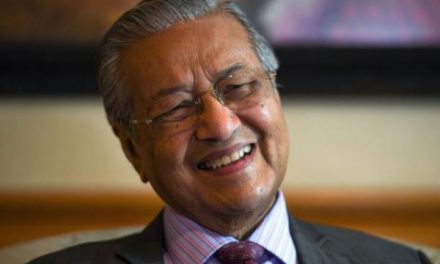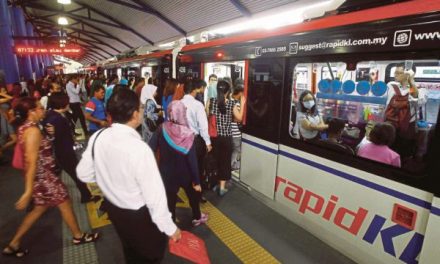‘Masking up is here to stay’
With Malaysia accepting that Covid-19 is going to be endemic, Datuk Seri Ismail Sabri Yaakob envisions that mask wearing in the country is here to stay. The Prime Minister said it was unlikely that the country would remove the mask-wearing mandate; face coverings would be the Malaysian norm. “This is because Covid-19 will remain among us, like dengue and other diseases. So, to protect ourselves from Covid-19, we will just continue to wear masks. It is going to be part of our culture,” said Ismail Sabri when asked if Malaysia intends to lift the mandate on mask-wearing. Since Aug 1 last year, the government has made it compulsory for people in Malaysia to wear masks when in public. “If you ask me, having this culture is one of the positive things that has come out of this pandemic,” he said. (The Star)
Malaysia eyes international border reopening in December
Malaysia is looking to reopen its borders to foreign travel in December, once 90% of its adult population is fully vaccinated. “Yes, December is possible” though “it’s still too early at the moment. We will open the state borders first before allowing international travel,” Prime Minister Ismail Sabri Yaakob said. Malaysia’s accelerated vaccine rollout has since allowed the government to gradually ease restrictions on movement and allow benefits for the fully inoculated. As of Saturday (Oct 2), 87.2% of the adult population had been fully vaccinated. The rollout has put the government on course to reach its target of reopening all economic and social sectors by the final quarter of the year. (The Edge)
Moody’s: Refinancing risks will rise for Chinese property developers
Chinese property sector’s tight credit environment, exacerbated by China Evergrande Group’s (Ca negative) credit distress, will increase refinancing risks for developers, Moody’s Investors Service says. “Weak investor sentiment in a tight credit environment will increase refinancing risk for the sector, particularly for financially weak developers because they will have less flexibility to deploy financial resources,” says Celine Yang, a Moody’s vice president and senior analyst. She said Evergrande’s financial difficulties will continue to spill over to other developers, by lowering financial institutions’ risk appetite for the property sector and tightening mortgage and property development loans. Moody’s said funding conditions will remain tight for the rest of 2021 – particularly for weaker developers – and market volatility will persist amid the tough operating and financial environment. Large and financially sound developers, however, will maintain access to onshore and offshore bond markets for refinancing. (The Star)
Consumer protection, cyber security being improved in MCMC Act
Consumer protection and cyber security are among the aspects being improved in the Malaysian Communications and Multimedia Commission Act 1998, says Malaysian Communications and Multimedia Commission (MCMC) chairman, Fadhullah Suhaimi Abdul Malek. “The MCMC has scrutinised the existing act and among others, on how we can ensure the service provision is always good for consumers, meaning we must have consumer protection. Other than the monitoring aspect, we are also looking at the regulations which will help MCMC and other security agencies tackle the issue of cyber security,” he said. Communications and Multimedia Minister Tan Sri Annuar Musa had reportedly said that some phrases in the existing act must be reviewed to provide a more effective legal aspect in tackling the issue of national cyber security. (Malay Mail)
Singapore cuts quarantine for travellers and eases arrival rules
Singapore is shortening the quarantine period for travellers entering the city-state and further easing arrival rules for some countries in the latest move to reopen its borders. Arriving travelers from certain regions will need to spend 10 days in isolation starting Oct. 7, instead of 14 days currently, officials told reporters in a briefing on Saturday. Those quarantine rules apply to so-called category III countries, which will include the U.S. and the U.K. from next week. Singapore officials said their latest steps to curb the virus’s spread are having a gradual effect, even as cases rise. As part of the changes announced Saturday, it also plans to move several countries to category II, from where travelers only need to spend seven days in quarantine, starting Oct. 7. With more vaccinations and a higher level of natural immunity, Singapore will eventually reach a point where it can re-open more confidently without experiencing a new wave of cases, said Finance Minister Lawrence Wong. (The Star)
Pandora Papers: Document dump allegedly links world leaders to secret wealth
A massive leak of financial documents was published by several major news organizations on Sunday that allegedly tie world leaders to secret stores of wealth, including King Abdullah of Jordan, Czech Prime Minister Andrej Babis and associates of Russian President Vladimir Putin. The dump of more than 11.9 million records, amounting to about 2.94 terabytes of data, came five years after the leak known as the “Panama Papers” exposed how money was hidden by the wealthy in ways that law enforcement agencies could not detect. The International Consortium of Investigative Journalists, a Washington, D.C.-based network of reporters and media organizations, said the files are linked to about 35 current and former national leaders, and more than 330 politicians and public officials in 91 countries and territories. It did not say how the files were obtained, and Reuters could not independently verify the allegations or documents detailed by the consortium. (The Star)





